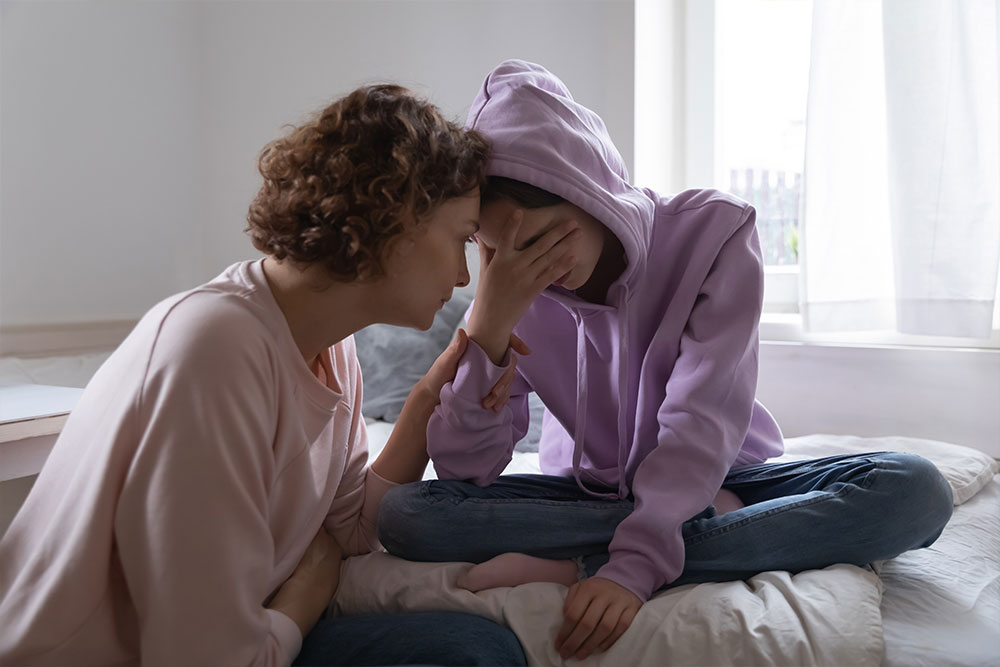Ronak Nangia (name changed) decided to surprise his parents on the occasion of Holi, in March 2020, after having not seen them in a year-and-a-half. Days later, things began to go downhill. How is that? The parents didn’t seem to agree with his lifestyle. This resulted in frequent arguments, and to make matters worse, the nationwide lockdown was implemented, which resulted in the three members living under the same roof for months on end. Ultimately, it left him dejected and restless.

This begs the question, would an open channel of communication have helped matters? Probably. If not miraculously changed the scenario, it would have undoubtedly helped both parties understand perspectives.
Importance Of Communication
According to Dr Mehezabin Dordi, clinical psychologist, rehabilitation and sports medicine department, Sir HN Reliance Foundation Hospital, Mumbai, good communication is an important part of relationships of any kind. Here are the benefits.
1. It Helps Strengthen Respect: Effectively communicating allows both parties to develop respect for each other. The idea is simple: people are empathetic. Conversing will help them understand the other party’s side of the story. It’s also a sign of a healthy relationship.
2. It Takes the Guesswork Out: A healthy connection with someone doesn’t come from withholding information. It comes from being transparent with them. Improving communication skills means you can go about your business, never having to worry about your message being misconstrued. Your relationship becomes simpler, leaving the parties involved less stressed and, ultimately, happier.

3. It Helps To Avoid Misunderstandings: As close as we may be to our partners or families, every relationship is made up of unique people. And everybody has bad days. Communicating helps to prevent miscommunication.
4. It Builds Trust: Trust is one of those factors in a relationship that is both important and takes time. Without trusting the person you’re in a relationship with, there will be no growth.

5. It Lets Partners/Families Support Each Other: The problem arises when we don’t communicate our hardships to people close to us. When you run into challenges, you need to make yourself available so that your partner or family can be there for you, even when it doesn’t seem like it. They can offer you a shoulder to lean on, and also feel valued.
How To Communicate Effectively
Our words make or break a situation. Dr Dordi points out that our words only account for seven per cent of the overall message that is communicated. The remaining 38 per cent is through our tone, and 55 per cent is through our body language.
The following few tips can help one communicate better:
i. Thoughts Before Words: When you decide to confront the other person, take some time and think about what you want to say. Wait for the right time to have a conversation about something that is bothering you as it’s best to avoid it when the parties involved are in a rush or upset. It is advisable to not bring up past mistakes or issues, as that will only start an argument.
ii. Tell The Truth: Sometimes, you might be compelled to hide the truth to avoid hurting your loved ones, but dishonesty breaks trust. Brutal honesty hurts feelings, but conveying it effectively builds intimacy and opens the door for further communication.

iii. Respect Each Other’s Viewpoints: Remember there are a lot of “rights,” depending on who you are talking to, so avoid getting caught up in right vs wrong, and respect each other’s differences. Don’t just act like you’re listening — really listen and hear what they’re telling you. Try to understand what they want and how they feel. Hear them out, and then convey how you feel.
iv. Be Direct About Your Feelings: It is easy to assume that the other person already knows what you’re feeling or thinking. People are not mind readers. Calmly explain what you mean, and then move forward.

v. Pay Attention To What You Say: To understand how your words and tone truly sound to others. Listen to your pace, and tone. This is what your loved ones hear. If you instantly start blaming others, the whole point of the conversation will be lost.